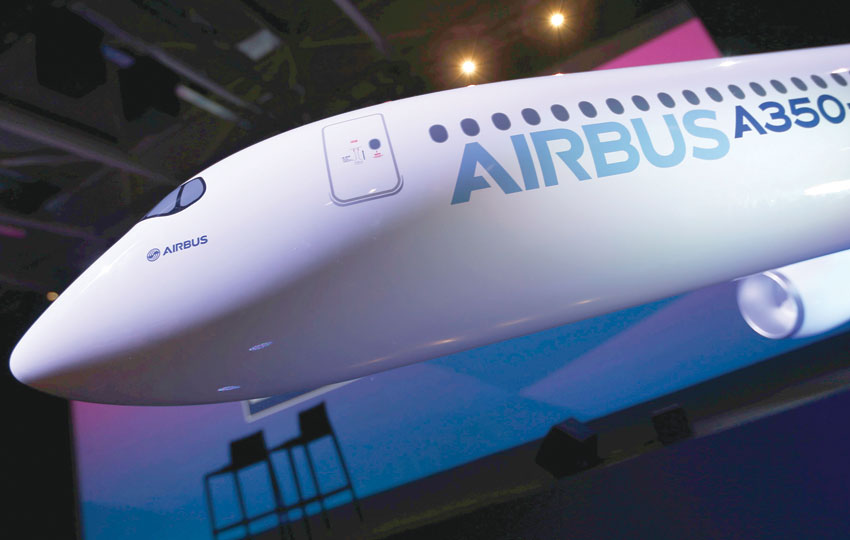

Tim Hepher -
After top-level restructuring at Airbus come the musical chairs and a new logo intended to convey unity as the European giant aims to refocus its management without a return to past infighting.
In a symbolic move, the man in charge of making Airbus jets has reluctantly agreed to leave his office by the vast factories in Toulouse and move to a new corporate headquarters in the same southern French city, people familiar with the matter said.
At first sight, it might seem an obvious move following the restructuring in which the planemaking division became the mainstay of the overall structure of a company that also manufactures space rockets, helicopters and military jets. But close watchers of the predominantly Franco-German firm, still bruised by decades of infighting, fear the decision to put planemaking Chief Fabrice Bregier in the new HQ alongside his boss Tom Enders could test a fragile internal power balance.
For Bregier, it may only be a move of about a kilometre on the ground, but it shifts him ever so slightly away from the company’s economic nerve centre that drives its share price, revenue and profits. And it comes at a critical time for the world’s second largest planemaker as it strives to boost output.
“(Bregier) isn’t happy, but he is going to make it work,” said one person close to the company, who asked not to be named.
Airbus agreed last year to merge its jetliner division with its parent group to reflect the stronger bias towards civil manufacturing that started in 2013, after the failure of a planned merger with British defence firm BAE Systems. After the latest internal restructuring, Bregier gave up his title as chief executive of the Airbus commercial airliner business, but remained its president while also becoming chief operating officer and number two for the group as a whole.
“Airbus is now an aircraft manufacturing company with two other divisions, so after the merger the focus on the core business is much tighter,” an Airbus spokesman said.
Enders, 58, is now drawing core people and functions around him at the new HQ to secure his vision of forging the integrated company he believes is necessary to remain on a par with arch-rival Boeing and fend off new competition.
He has pledged to make Airbus a “normal company” after French and German political interference was curbed in 2014 by a change in its corporate governance following the failure of the BAE deal.
But plucking Bregier from a domain in which he is undisputed leader — having overseen record plane output and an improved industrial performance — and accentuating his other role as deputy to Enders is seen by some as a potential loss of focus.
Airbus is confronted with the critical task of raising its jet output fast to fill thousands of orders on its books, and investors are especially sensitive to any risk its top managers become distracted by internal politics. “What is unusual is to have restructuring happening at a time when production is increasing sharply,” one European aerospace analyst said. — Reuters
Oman Observer is now on the WhatsApp channel. Click here



